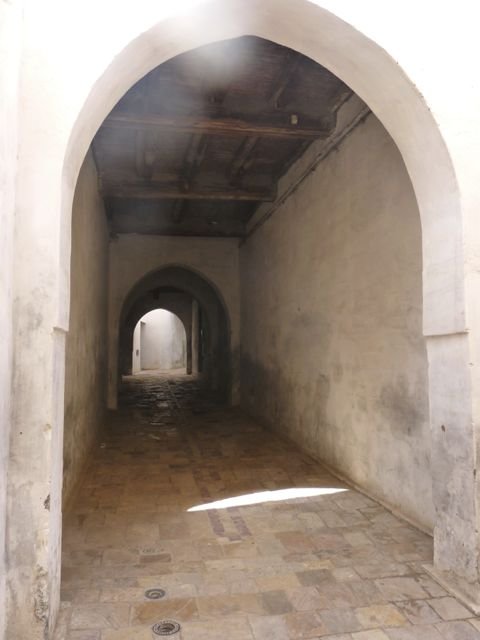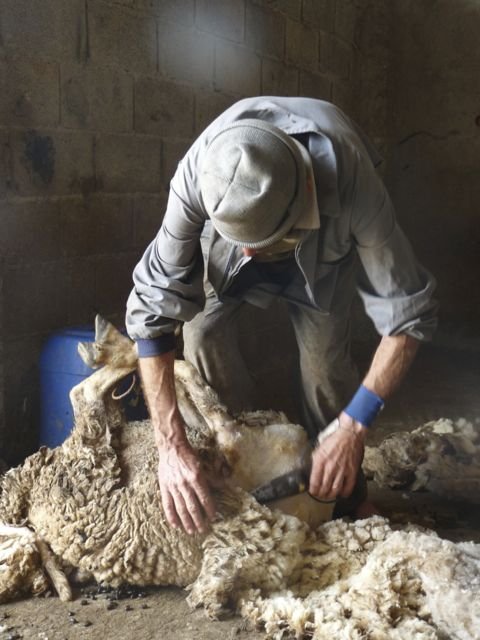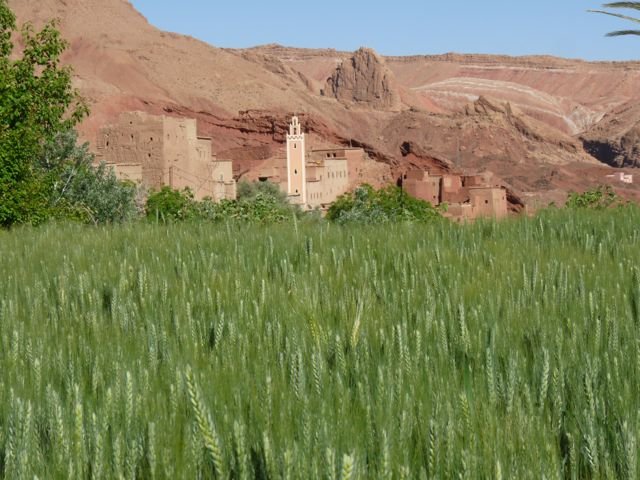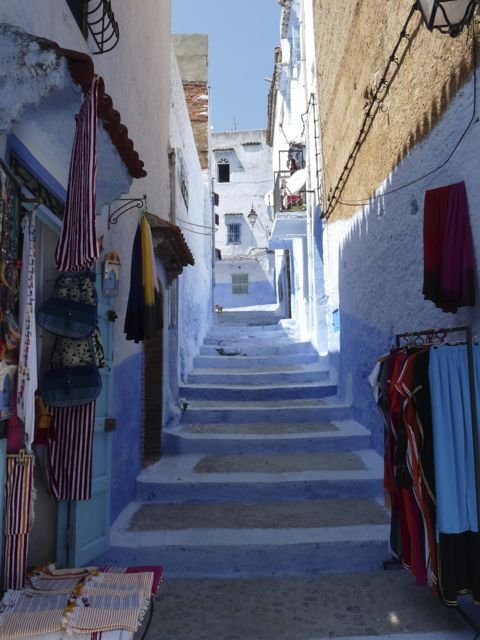No, traveling is not expensive OR how to travel on a budget.
Among my friends, I have a reputation for being some kind of a traveller. Sometimes, I find it an applicable label, endearing for the romanticism it implies, and sometimes I find it misleading, as traveling to me is more a means than an end. And who can call oneself a travel who has never been to... say India? Either way, I do tend to change my position in space rather frequently and therefor I found it surprising that I write so little about it. Guess I'm more of a traveller than a writer. Certainly a rambler.One of the things that continues to strike me in conversations on traveling, that many of my contemporaries seem to see it as an expansive activity, associated with towering costs that makes it impossible for them. When I say striking, I mean profound amazement and confusion because to me, traveling is rarely more expansive than staying (what is even the opposite of traveling? Non-traveling?). Sometimes, it is actually cheaper. But more on that later. This bewilderment is the reason for this post. It's partly about my style of traveling and partly an attempt to understand the reasons that keep others from hitting the road (or rails, air, water, outer space or what not).So what is traveling? On the most basic level, it's changing one's location in space (and until beaming becomes a reality, time, too.). I include in my definition, that traveling implies staying away from wherever you stayed before. I admit, it's a difficult definition, as it implies that you had to stay somewhere, in order to be a traveller. What about someone, who never stays anywhere and is constantly on the move? Does that make the person less of a traveller? "INDEED", you might chime in, "it's a hobo, a bum, a punk!" Well, these are all judgmental expression and I think that person would be a perfectly valid traveller. What I am trying to say is that you need to stay away from wherever you came from. You can't just change your location to work and back home within one day and call yourself a traveller. This is commuting. Everything else is negotiable. Basically, if you do have a cunning, positive definition of a traveller, please post it in the comments. Lacking a better definition and internet connection to look it up (guess what, I'm traveling), I leave it as that and proceed.As earlier mentioned,traveling to me can be a fairly cheap,which to be fair is counter-logical. After all, you add one activity to the things you would be doing otherwise.
It follows, that
right? Well, not quite. Basically, for these two reasons:
 Now, the critical point is, that you need to minimize your expanses for board, transportation and stuff. When you achieve the following two statements to be true
Now, the critical point is, that you need to minimize your expanses for board, transportation and stuff. When you achieve the following two statements to be true
 then you reached the holy grail of cheap traveling, you safe money while traveling, expressed as
then you reached the holy grail of cheap traveling, you safe money while traveling, expressed as
 Depending on your situation, that's $200-$500 savings a month right there (You are doing something seriously wrong, if it's even more. But I save that for a later post). Now you practice the art of free living. Especially in the warmer months, you could be camping. Many countries have lands where backcountry camping is free of charge. If you want to stay in more developed areas, you can sleep in most airports for free. Even better, you sign up to sites such as couchsurfing or hospitality club and stay with kind strangers, that invite you to their homes. It's
Depending on your situation, that's $200-$500 savings a month right there (You are doing something seriously wrong, if it's even more. But I save that for a later post). Now you practice the art of free living. Especially in the warmer months, you could be camping. Many countries have lands where backcountry camping is free of charge. If you want to stay in more developed areas, you can sleep in most airports for free. Even better, you sign up to sites such as couchsurfing or hospitality club and stay with kind strangers, that invite you to their homes. It's mostly safe and fun. Heck, travelers relied on strangers for century for free lodging. Just ask, built a relationship instead of buying a commodity. Only when you end up somewhere longer, you rent or sublet a room (do not take a hotel!). Of course, in that case your expanses won't necessarily be lower than they were at home, but if you look around, they won't be higher either.
It's even easier in the stuff department. Since you don't want to bring all that expansive and heavy entertainment equipment in your rucksack, you pick up something more lightweight, which tends to be cheaper, too. Reading a book (one at a time) is a popular choice among travelers. So is taking pictures with a small camera. Part of why people go traveling in the first place is to see something new, so you'll enjoy studying that. Be it a new city or the plants and wildlife in the great outdoors. All that is incredibly cheap yet more fulfilling then watching movies or jet-skiing.
Transportation can be had for free, too. Provided you are able to walk, you are already gifted with a free mode of transportation. Just hike places. If you want to be faster, hitchhike. Yes, it can still be done and in most places, it is legal, too (Hitchwiki.org is a great resource to get you started). If you prefer the train, you could hop on a freight train. Personally, I have never done it myself, but I met many who did and had a great time and it sure sounds intriguing. But here is the secret point: since you're already saved a couple of hundred dollars (or some other currencies, whatever) for shelter and stuff, you can easily afford train or plane tickets or gas AND still have some money left. Yes, it is indeed wonderful!
So this is how I travel cheaply. Let's turn our attention to the second question of inquiry,
why do people think traveling is expansive and unaffordable, even though it isn't as we have seen?
Well, I can't be sure, but this is what I assume:When people say traveling, they don't mean changing one's position in space (excluding commuting). They mean changing one's position in space AND living a middle class life while doing so WHILE keep paying that apartment/room/house back home. Hell yes, that would be way more expansive and it seems utterly ridiculous to me why anyone would want to do that. And it gets worse. From that perspective, it's not far to even more irritating assumptions, like traveling has to include a very far and exotic destination and perhaps on a even higher level of consumption (think whirlpools and fancy restaurants), since you only do this once a year. Now, don't get me wrong, all that qualifies as traveling and it's probably fun, too. But when people say, they don't have the funds for traveling, they mean expansive spa traveling (shorthand for every kind of traveling that includes hotels, restaurants etc.) as a vacation from work, not traveling per se. This is all fine and fair, but please name it accordingly.Please comment if you think my assumption is wrong and you have a different explanation. You can also comment to tell me that my views are pretentious or righteous or that I'm a hobo, which would be a fair point.A few qualifications/further explanations at the end.I didn't yet satisfactory address the issue of food. In my experience, it usually ends up being the same no matter where I am. That's why I assumed that When I travel, I tend to eat out more often, mostly because I don't have access to a kitchen, but also because I'm interested in the local cuisine (the best way of exploring that, though, is by being invited by locals to their homes. Not only is this free [you might want to contribute to that dinner in some ways], but also more authentic). The higher price tag for restaurant visits is then offset by having extremely cheap camping meals, like beans, oatmeal or peanut butter sandwiches and bananas. Of course, food expanses don't have to be equal, depending on your specific situation. If beans, rice and oatmeal is the stable of your diet already, you will hardly beat that on the road. Conversely, if you eat out a lot at home, you might make considerable savings when restricted to a very basic diet on your backpacking outing.
When I travel, I tend to eat out more often, mostly because I don't have access to a kitchen, but also because I'm interested in the local cuisine (the best way of exploring that, though, is by being invited by locals to their homes. Not only is this free [you might want to contribute to that dinner in some ways], but also more authentic). The higher price tag for restaurant visits is then offset by having extremely cheap camping meals, like beans, oatmeal or peanut butter sandwiches and bananas. Of course, food expanses don't have to be equal, depending on your specific situation. If beans, rice and oatmeal is the stable of your diet already, you will hardly beat that on the road. Conversely, if you eat out a lot at home, you might make considerable savings when restricted to a very basic diet on your backpacking outing.
Another valid criticism is that my explanation above doesn't address the job factor at all. More often then not, our need to earn money forces us to live at a specific place and we would lose that income when traveling, thus making traveling more expansive if you sum up income and expenses. Now, however, the main constrain to travel becomes time, not money. There is a whole different (yet related) argument to have here, why one might want to free up some time for traveling, which I save for later. You might also want to look into ways, how you could make money WHILE traveling. In my case, I usually used the model, where you work in a place and then find a new job or study program somewhere else and use this as an opportunity to a) travel to that place, where I sometimes try to extend the time for some diversions on my way and b) check out the new place, which some people consider traveling as well. Again, the most noble way of traveling, however, is if traveling becomes your life and you do it, because you want to avoid the exploitive world of wage- labor altogether.
The last qualification addresses people, that already live extremely cheap in their non-traveling day-to-day life. Many of my friends (and potential blog readers) are skilled frugalists (of choice or/and necessity) who hardly will be able to reduce their expanses even further while traveling. Interestingly, since these people know how to live on a budget already, they never think that traveling is expansive.PS: Can anyone give me a pointer, how to embed those mathematic formula nicely into html? I know how to get my pdfs through markdown, but html doesn't seem to work.
field trip to Kasba Tadla, Morocco
 In May I had the chance to take part in a field study in Kasba Tadla, Morocco which I combined with two weeks of travelling across this beautiful country. Lazy blogger I am, I didn't quite allocated the time to write about it - apart from diary entries and the research report.Alas, it was my first stay south of the Mediterranean sea. And while I leave the description of the beautiful landscapes that change dramatically as you cross the country away from the coast, south through a chain of several mountain ranges (being the Rif mountains and the numerous manifestations of the Atlas) right into the Sahara as well as a portrait of the rich cultural heritage to the travel writing trade (as well to my photography and real-life in-your-face story-telling), I'd like to point out that Morocco is probably a good start if you aim to leave the European bubble without feeling completely lost and helpless. Face it, it is some beautiful country and if you're priviledged enough to be on a vacation and not having to make a living, it's the most relaxing place I can think of. "Très tranquille" as they say. Actually, I'd like to make the point, that even if you HAVE TO make a living, it can be a very relaxing place. I'm not going to romanticize the life of Moroccan peasants and city dwellers alike. Most people we've talked to gave accounts on their hardships, the daunting unemployment and inapt politicians. However, most people in Morocco alloted time for the most basic yet important thing: time spent in community with friends and strangers alike. Being invited by complete strangers for a good "thé à la menthe" made me wonder, what I do with all the time in my life.Our research was titled "Urban primary production of food." Originally, we meant to work on urban subsistence production. However, we began to question the viability of the term "subsistence" in this specific context. Unlike in Europe, the distinction of the two domains of labor for subsistence and labor for profit is highly blurred. It is not too say, the term is completely inapplicable. It would "simply" require a new re-definition which we didn't quite have the time for in this one week field trip. One of the things that screams: "Further Research!"In three of Kasba Tadla's quarters, Hay Dakhla, Hay Berraka and Dar Draouech, we surveyed fruit trees, livestock husbandry and kitchen gardens. Thinking about the effort that grassroots movements all across the industrialized countries invest in order to push forward (small-scale) food production in cities, we were amazed to see, it is all in place in Kasba Tadla. So who is the developed country? Another term that lost its suitability. At the same time, we were shocked to realize, how much these practices are frowned upon by the local government. They dismiss subsistence as something backward of semi-wild, rural peasants that doesn't fit into a modern city. It is cynical: A group of European academics come to Morroco to critize a political position that had been implemented by European academics (and other colonialists) in the first place. How can we know, we're right this time?To sum up, we have shown that primary production of food takes place to a significant amount in Kasba Tadla. While it doesn't allow for self-sufficiency, it contributes to local resilience by reducing the amount of food that needs to be imported, by preserving local knowledge on food production and processing and by strengthening human relationship s1in the community. It is also of outstanding cultural value and, thus, adds to the quality of life of the population of Kasba Tadla.
In May I had the chance to take part in a field study in Kasba Tadla, Morocco which I combined with two weeks of travelling across this beautiful country. Lazy blogger I am, I didn't quite allocated the time to write about it - apart from diary entries and the research report.Alas, it was my first stay south of the Mediterranean sea. And while I leave the description of the beautiful landscapes that change dramatically as you cross the country away from the coast, south through a chain of several mountain ranges (being the Rif mountains and the numerous manifestations of the Atlas) right into the Sahara as well as a portrait of the rich cultural heritage to the travel writing trade (as well to my photography and real-life in-your-face story-telling), I'd like to point out that Morocco is probably a good start if you aim to leave the European bubble without feeling completely lost and helpless. Face it, it is some beautiful country and if you're priviledged enough to be on a vacation and not having to make a living, it's the most relaxing place I can think of. "Très tranquille" as they say. Actually, I'd like to make the point, that even if you HAVE TO make a living, it can be a very relaxing place. I'm not going to romanticize the life of Moroccan peasants and city dwellers alike. Most people we've talked to gave accounts on their hardships, the daunting unemployment and inapt politicians. However, most people in Morocco alloted time for the most basic yet important thing: time spent in community with friends and strangers alike. Being invited by complete strangers for a good "thé à la menthe" made me wonder, what I do with all the time in my life.Our research was titled "Urban primary production of food." Originally, we meant to work on urban subsistence production. However, we began to question the viability of the term "subsistence" in this specific context. Unlike in Europe, the distinction of the two domains of labor for subsistence and labor for profit is highly blurred. It is not too say, the term is completely inapplicable. It would "simply" require a new re-definition which we didn't quite have the time for in this one week field trip. One of the things that screams: "Further Research!"In three of Kasba Tadla's quarters, Hay Dakhla, Hay Berraka and Dar Draouech, we surveyed fruit trees, livestock husbandry and kitchen gardens. Thinking about the effort that grassroots movements all across the industrialized countries invest in order to push forward (small-scale) food production in cities, we were amazed to see, it is all in place in Kasba Tadla. So who is the developed country? Another term that lost its suitability. At the same time, we were shocked to realize, how much these practices are frowned upon by the local government. They dismiss subsistence as something backward of semi-wild, rural peasants that doesn't fit into a modern city. It is cynical: A group of European academics come to Morroco to critize a political position that had been implemented by European academics (and other colonialists) in the first place. How can we know, we're right this time?To sum up, we have shown that primary production of food takes place to a significant amount in Kasba Tadla. While it doesn't allow for self-sufficiency, it contributes to local resilience by reducing the amount of food that needs to be imported, by preserving local knowledge on food production and processing and by strengthening human relationship s1in the community. It is also of outstanding cultural value and, thus, adds to the quality of life of the population of Kasba Tadla.
three months in the USA. a conclusion
edit: After having spent another 3 months in the US (summer 2014) and having re-read this entry, I feel a little different about the things I wrote 3 years ago. I'm not saying it's wrong, it is just overly generalizing. For everything I wrote their are counter-examples. There's more to say...Despite all of that, I won't go about editing it. Just see it as an account of an European traveller being in the US for the first time.  I moved out my flat in Vienna in June to spend the summer with my girlfriend in Pennsylvania and to see a couple of places and friends on the way. With two days left in this country, I’m surprised to realize I’m sad to leave. In fact, I got quite attached to this country. This is why:
I moved out my flat in Vienna in June to spend the summer with my girlfriend in Pennsylvania and to see a couple of places and friends on the way. With two days left in this country, I’m surprised to realize I’m sad to leave. In fact, I got quite attached to this country. This is why:
- The boundlessness of the USA is legendary. That is what I assumed it to be, a legend. An illusion. I was proofed wrong. Once you’re in – which turned out to be much easier then expected – an area just slightly smaller than and as geographically diverse as Europe is waiting for you to be explored. Even though border controls are history in the European Schengen area, you can clearly feel the national borders. Language and cultural differences are fine, but separate train and bus networks aren’t. I don’t even mention different tax system, health insurance and phone networks. In the states, all that doesn’t bother you the slightest. Off you go. It is an incredible feeling of freedom, that you could travel/move to a tropical island, an isolate glacier, a Mediterranean climate or whatever else may cross your mind and all you had to do is to pack your things and get going.
- The USA is an incredibly culturally diverse country. You would say, Europe has all the different languages and cultures in its different countries. Well, every major American city has all that in their neighborhoods. And it doesn’t stop at Littly Italy or the Irish community. Chinatown is ’round the corner…Yes, there is inequality between the different origins and there is xenophobia. The general attitude, however, is that you are welcome in this country to achieve what you want. Most people are at least 3rd generation immigrants and in fact, the stories of people that came to this country to start a new life, are at the heart of the American myth.
- So are stories of personal achievement. Even though only a small fraction of the people that arrived on this continent actually made it from a dishwasher to a millionaire, many started small businesses or farms. Unlike in many other places, success isn’t necessarily confronted with envy or at least suspicion, but admiration. I wouldn’t be surprised, if this attitude may occasionally turn into terror, if one decides not to do anything. But that’s not really an issue for me.
- Very obviously, the USA are a gorgeous place. I dedicated most of my writing and photography on my travel journal to the countless natural beauties and spectacular cities.
- The biggest surprise to me was the high quality and deliciousness of American cooking. Yes, there is a lot of awful junk food, but you’ve got a choice. Be it a Chinese restaurant in NYC, seafood at Jersey shore, soul food in the south, an Italian restaurant in Boulder, CO or any of the countless, tiny diners down the road. Never in my life I had such a good food for affordable prices than here.
- Obviously I am sad to leave my girlfriend for a couple of months, but I don't intend to discuss my personal dilemma on this blog.
It is not all good.
- The strong individualism often comes with recklessness. A lot of people will drive SUVs or other overdimensioned vehicles, just because “they can,” not caring about climate change and global responsibility. Many hate paying taxes and social insurance contributions, ignoring the situation of people with less luck.
- The religious right of the US is frightening to say the least. The way how certain politicians and media people agitate against homosexuals, Muslims or the social state is revolting.
- A lot have been said and written about the double standards in American politics, which question the grandness of the US rather a lot. I try not to judge a country by its politics alone, even though I’m aware, that they represent the general zeitgeist of their voters at least to some extend.












